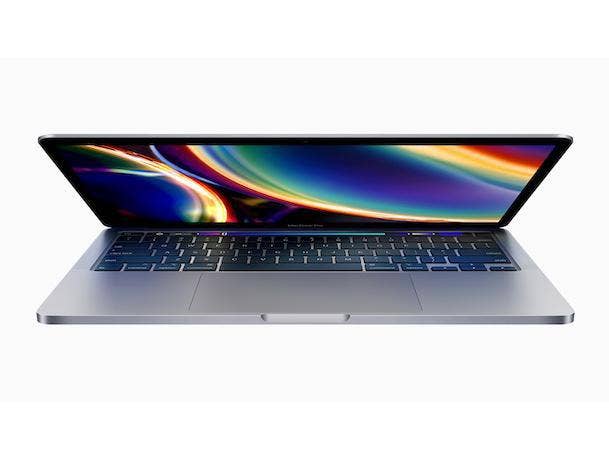Apple Planning To Announce Its Own Mac Processors This Month: Report
The chip initiative, which would displace Intel, is a ‘huge undertaking’ for Apple, one solution provider executive tells CRN.

Apple may soon announce an initiative to bring in-house processors to its Mac lineup, in preparation for a launch of Arm-based Macs in 2021.
The announcement is likely--but not certain--at Apple's Worldwide Developers Conference, which starts June 22, Bloomberg reported.
[Related: Apple Solidifies Plans To Launch Its Own Chips For Macs: Report]
Reports over the past few years have suggested that Apple has been working to develop its own Arm-based processors for its Mac portfolio, which would displace Intel processors.
Apple is planning to announce the initiative at the virtual WWDC to provide developers with enough time to adapt prior to the launch of the Arm-based Macs in 2021, Bloomberg reported.
Intel declined to comment, and Apple did not immediately respond to a request for comment. Apple started using Intel processors for the Mac line in 2006 in a move away from PowerPC processors.
"I believe this will be a huge undertaking like back in 2006--which was somewhat painful and confusing, but the Mac became stronger as a result," said one executive at a solution provider partner of Apple, who asked to not be identified. "I think synergies today could be on a much larger scale, as our world has changed and mobile devices are everywhere. Barriers on device form factors could disappear--the same software could run on any platform, perhaps utilizing the best features on each device."
That could mean "a single App Store for any Apple product," the executive said. "A single management process is already here."
Apple's initial chip design will reportedly be based on the forthcoming A14 processor for the next iPhone models. Along with a CPU, the processor will also include a GPU and a Neural Engine for machine-learning functions, according to Bloomberg.
Apple is believed to be interested in developing its own processors to reduce its dependencies on suppliers. Along with device timetables not always lining up with those of suppliers, manufacturers such as Apple are continuing to grapple with CPU shortages from Intel that have constrained device production.
Apple has accounted for roughly 5 percent of Intel's annual revenue, according to a previous Bloomberg analysis. The Cupertino, Calif.-based company already leverages microprocessor designs from Arm in its A-series processors for iPhone and iPad.
"Just as Arm CPUs on Windows laptops have proven the technology, the Arm CPU can run in 'emulation mode' so the software doesn’t need to be recompiled or redeveloped," the solution provider executive said. "Apple could utilize this same idea to carry over all the current software products, and at WWDC give [developers] a roadmap to optimize their software to run in Arm native mode for additional benefits. Software developers could upsell a new version (upgrade fees, licensing) to recoup this cost."
With this in mind, Apple "could revamp all the Mac hardware in 2021 with little impact to enterprise and end consumers," the executive said.
However, Patrick Moorhead, president and principal analyst at Moor Insights and Strategy, called the chip initiative "a risky and expensive move for Apple."
"I'm scratching my head on why Apple would do this. There’s no clear benefit for developers or for users and it appears Apple is trying to boost profits," Moorhead said. "All things equal, Apple’s new CPUs would need to outperform Intel’s to translate the x86 (Intel/AMD) world to Arm. To get a strategic benefit, Apple needs developers to rewrite applications to take advantage of its GPUs and NPUs which is a heavy lift."
Dylan Martin contributed to this article.